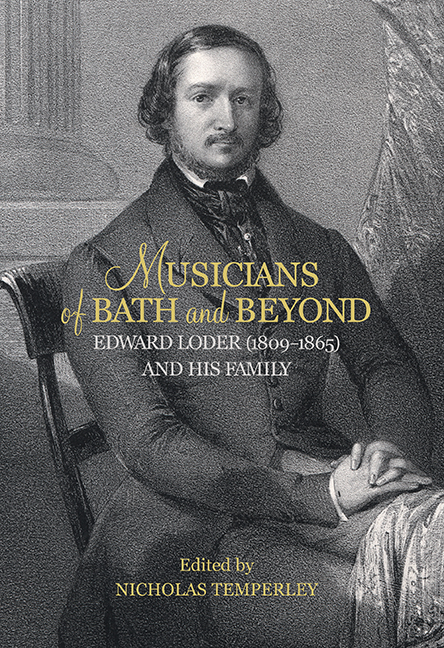Book contents
- Frontmatter
- Contents
- List of Illustrations
- Acknowledgments
- Notes on Contributors
- The Loder Family Tree
- Abbreviations
- Introduction
- PART ONE The Musical Profession in Early Nineteenth-Century England
- PART TWO The Loder Family
- PART THREE The Music of Edward Loder
- EPILOGUE The 1966 Revival of Raymond and Agnes
- Select Bibliography
- Index of Edward Loder’s compositions
- General Index
- Miscellaneous Endmatter
EPILOGUE - The 1966 Revival of Raymond and Agnes
Published online by Cambridge University Press: 04 June 2021
- Frontmatter
- Contents
- List of Illustrations
- Acknowledgments
- Notes on Contributors
- The Loder Family Tree
- Abbreviations
- Introduction
- PART ONE The Musical Profession in Early Nineteenth-Century England
- PART TWO The Loder Family
- PART THREE The Music of Edward Loder
- EPILOGUE The 1966 Revival of Raymond and Agnes
- Select Bibliography
- Index of Edward Loder’s compositions
- General Index
- Miscellaneous Endmatter
Summary
IN 1956, having completed my undergraduate degrees in music at Cambridge, I made a decision that I had been considering for some time. I wanted to choose a topic for my Ph.D. research that would begin to open up the subject of English music of the Romantic era, which I had been exploring. I had become convinced that however much bad music might be attributed to the late Georgian period, the reign of William IV, and the early and mid-Victorian eras, nothing could justify the almost total dismissal of the period that some leading writers had adopted. At the very least, its musical life and culture should be studied afresh, and set free from the patronising and prejudiced attitude to the ‘Victorians’ which had for so long coloured perceptions of every art except literature. And perhaps research would uncover some forgotten music of genius that might be worth reviving.
Since I was a pianist of moderate ability, but no singer, it seemed easiest for me to concentrate at first on instrumental music, so I chose for my research topic ‘Instrumental Music in England, 1800–1850’. Most of my teachers and fellowstudents thought I was out of my mind. The only Cambridge scholar at the time who was able and willing to supervise my research on such an offbeat subject was Charles L. Cudworth, librarian of the Pendlebury (Faculty) Music Library. His encyclopaedic knowledge of English musical sources was invaluable to me, though his own interests were centred in the eighteenth century. I also received much general encouragement and wise criticism from my former supervisor, Philip Radcliffe. Eventually I produced my dissertation in 1959.
It did seem then that the time might have come to begin a Victorian revival. In 1958 the Victorian Society had been founded by a group that included such famous names as John Betjeman, Henry Russell Hitchcock, and Nikolaus Pevsner. Although the Society's main focus was always on architecture, in the early years it tried to cover the other arts as well. In September 1964 I gave a talk for the Society at Leighton House, London, on ‘Victorian Music’, but it seems to have been the last of its kind.
- Type
- Chapter
- Information
- Publisher: Boydell & BrewerPrint publication year: 2016



